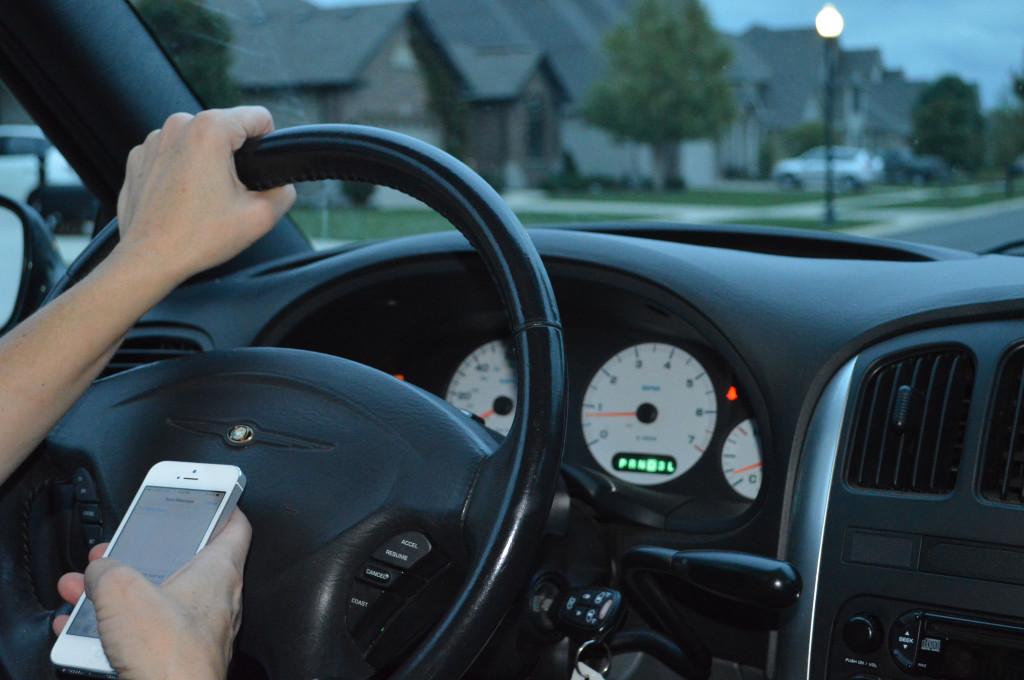Person behind the phone could be at fault in an accident
Even if someone isn’t in the car, it’s now possible that a person can be held responsible for an accident just by texting the driver. According to a New Jersey appeals court panel, both the driver and the person texting is liable in certain circumstances.
On Sept. 21, 2009, Kyle Best, 18, was texting his girlfriend when his pickup truck crossed the center line on a curve and crashed into a couple on a motorcycle. David and Linda Kubert both lost their left legs as a result.
After settling their lawsuit with Best, the Kubert’s sued the person texting Best at the time, Shannon Colonna, stating that she was “electronically present” in Best’s truck by texting him. When a lower court dismissed this, the Kubert’s filed an appeal. The three-judge panel from the Superior Court of New Jersey’s appellate division all agreed that there wasn’t enough evidence that showed whether Colonna was responsible for distracting Best.
Although the Kubert’s were unsuccessful, the court said texters could be held liable in civil court for being a distraction to the driver by texting him or her, provided they had a good reason to believe the driver would respond.
“We conclude that a person sending text messages has a duty not to text someone who is driving if the texter knows, or has special reason to know, the recipient will view the text while driving,” Superior Court Appellate Division Judge Victor Ashrafi wrote.
In other words, a texter is partly at fault if they know that person is driving and continues to text them or expects a response from the driver. Just because a person isn’t in the car with the driver doesn’t mean that they aren’t distracting them over the phone.
This controversial topic is being discussed amongst all types of people.
“If the texter knows that person is driving and assumes they’ll respond while behind the wheel, then they should be at blame and get in trouble. Just because the texter isn’t directly in the car, they can still distract the driver,” junior Zack Theilk said.
Senior Brittany Olson has a opinion on the topic.
“When a person knows they’re texting someone who’s driving but doesn’t expect a response from them, the texter shouldn’t get in trouble. It’s the drivers choice to actually look at their phone while behind the wheel,” Olson said.
Olson knows first hand what it’s like to be on the other side of the phone. Last year one of Olson’s friends was driving and flipped the car while texting her.
“I knew my friend was driving, but it was her choice to glance at her phone. Just because I knew they were driving doesn’t mean I was being a distraction. I figured they’d look at my message after they were done driving,” Olson said.
Just like Best, people text and drive daily. It’s proving to be a growing trend. According to a Pew survery, forty percent of all American teens say they have been in a vehicle when the driver used a cell phone in a way that put people at risk.
“I don’t feel like you can criminally charge a person that isn’t in the vehicle with the driver. But if the texter has knowledge that the person is driving and expects them to respond, then some responsibility should be taken,” Gardner said.
Opinions differ on this subject, and as attention is being brought to this issue, discussion arises.
Accidents occur all the time, and texting while driving is certainly a cause that is being seen more and more. According to textinganddrivingsafety.com, when someone is texting and driving it makes the chances of an accident occuring 23 times more likely.
As a teenager, Theilk witnesses friends texting while driving and knows how dangerous it can be.
“Personally, I don’t text and drive because it’s too risky. It’ll cause you to take your eyes off the road. Even if it’s just for a second, taking your eyes off the road can risk someone’s life,” Theilk said.
In 2009, the Virginia Tech Transportation Institute found that five seconds is the average time a person’s eyes are off the road while texting. When traveling at 55 mph, that is enough time to cover the length of a football field. Every second that a driver is looking at their phone instead of the road can endanger their life, along with someone else’s.
People automatically blame the driver in accidents like these. With the case in New Jersey, citizens are now starting to realize that the person on the other end of the phone can possibly share the blame.

Grade: 12
Hobbies: Eating Chipotle, Watching Netflix, Shopping
Extra Curricular Activities: Soccer, NHS and student council








